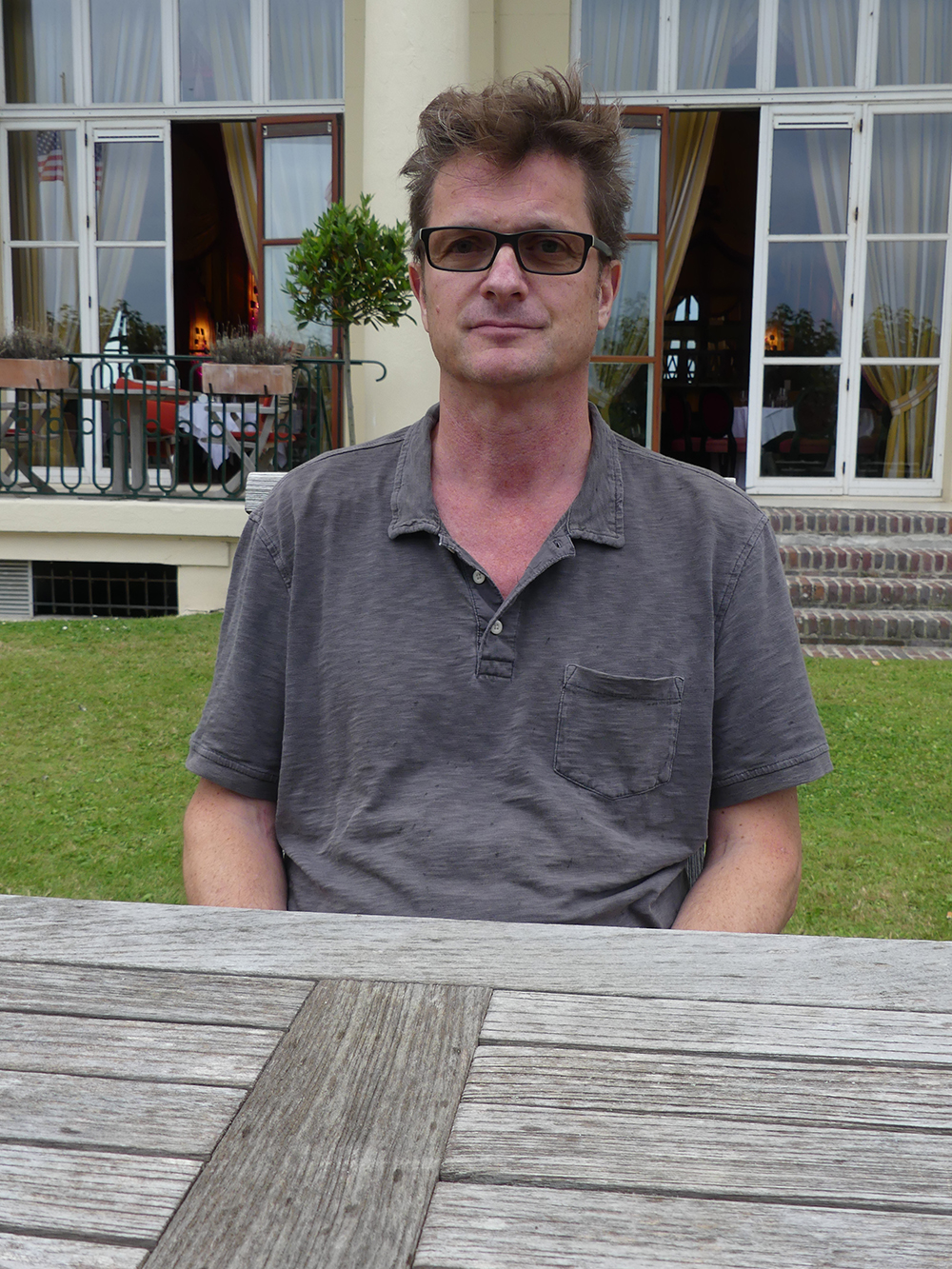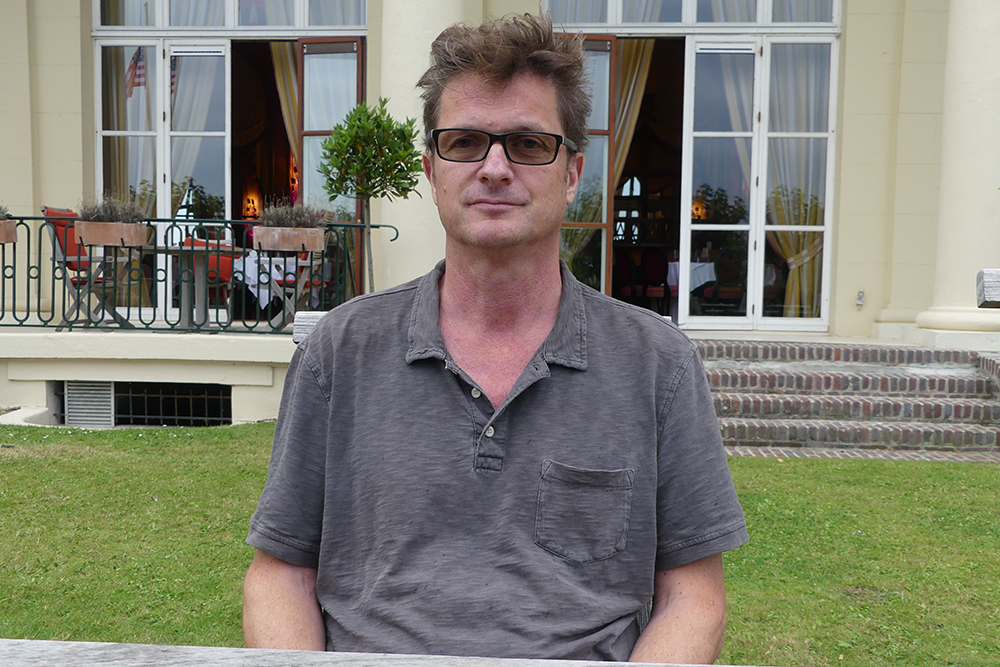Festivals - FCAD 2021 : We are living things : Let’s talk with Antonio Tibaldi
By Mulder, Deauville, Hôtel Barrière Le Royal, 08 september 2021
During the Deauville American film festival we have discovered the new Antonio Tibaldi movie, We are living things. We had also the opportunity to interview him at the Hôtel Barrière Le Royal Deauville.
Q : Please can you introduce yourself and tell us a little bit about your background ?
Antonio Tibaldi : my name is Antonio Tibaldi. I am a filmmaker i live in New York city i was born in Australia but grew up in Europe and moved to the US in my early twenties.
Q : After directed some short movies and movie as Il colore dei suoi occhi (1991), Il colore dei suoi occhi (1997), Claudine's Return (1998), We are living things is your new movie. Please can you talk a little about the origins of this movie ?
Antonio Tibaldi : We are living things is something that i wrote with a collaborator that i work with a lot Alex Lora who is a spanish filmmaker and the starting point was actually a short that he made which is called Only Solomon Lee. he's also a director and that was just the beginning of kind of the odyssey of finding. The story for this film we also i have to say wrote this during the first year of presidency of Donald Trump so it a part of the of the you know climate was somehow a reaction to what was happening in the US and consequently in the world and so those characters depicted in We are living things are they called them illegal aliens they are undocumented people who have entered the States illegally and so they actually don't have a formal recognizable official identity as citizens in the country that they have chosen to live to live in so that puts them kind of uh at odds in the system in the legal system of the country and they become outcasts and underdogs just for that the story is the recognition at some point during the the story that they both have a connection which is because they both really believe the same thing so they believe in other otherworldly life form that exists and that could save them when they realize that they both have the same belief that creates a strong bond between them.
Q : In a few words, can you talk to about the story of your first feature film ?
Antonio Tibaldi : yes as i was mentioned the previous question they meet the two characters Solomon who is from Mexico and Chuyao from China meet by coincidence and very early Solomon realizes that she has some connections with otherworldly life forms and he also has that and so he becomes extremely curious about her and realizes that she is under the spell and under the control of a very negative influence which is kind of her boyfriend pimp and discovers parts of the activities of her pimp which are extremely dangerous to her without her consent he freezer of him and together they start a journey to the open space the open expansions of the desert of Arizona where Solomon's mother had disappeared soon after crossing the border.
Q : What should be for you a good acting direction? What can you tell us about you work with Madeleine Coghlan, Devery Jacobs ?
Antonio Tibaldi : the way i work with actors especially in this film has been the following way they came very early quite a few she came two months before we started shooting to New York city she really didn't speak the language at all and he came about four weeks before so we had a substantial amount of time together in New York prior to shooting i asked them to not study not certainly don't study to not study the scenes uh that were in the screenplay to think just about their characters and not to overthink about it because I felt that when i cast them i somehow recognized something that they as humans had that was related to the characters that i wrote so i didn't want them to be burdened by too much homework if you will and when we started working together I didn't want to talk too much about the characters i just wanted to try the scenes but not the way they were written just talk about the circumstances of each scene what is the objective of that scene and just throw them in and see what they came up with i had an assistant videotaping every single thing that we did together and at night we would re-look at what they had done and correct or change the lines of dialogue and the staging so they were discovering the staging and giving ideas not just ideas but giving demonstrating an idea so doing things in front of me that i could kind of pick and choose and then that became the writing so the writing was a photography of what i saw in many ways
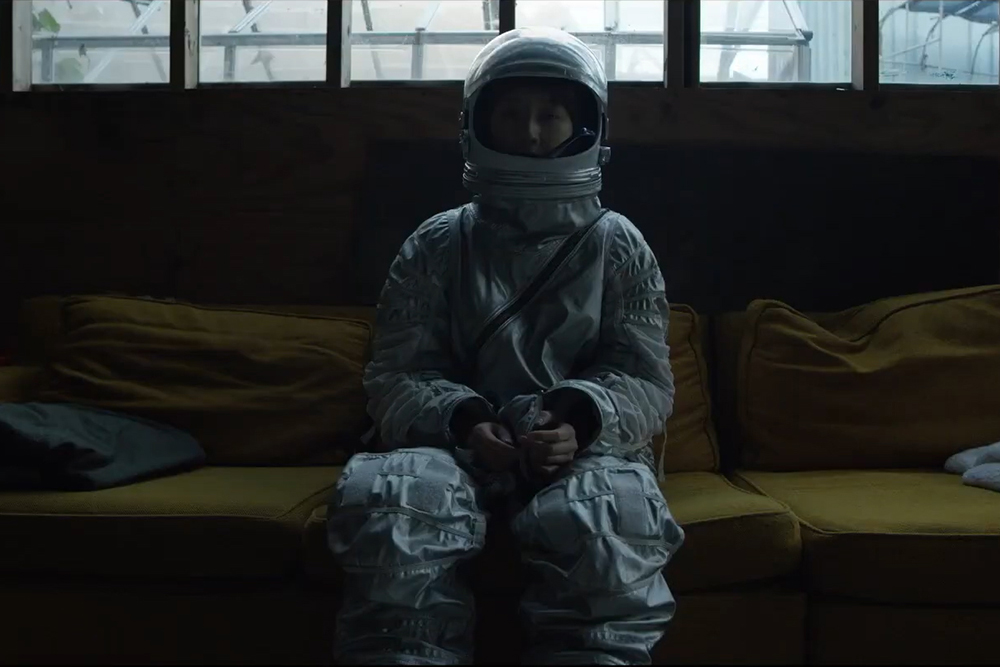
Q : Which researches have you done in order to write and direct this movie and how have shared the written of this movie with Alex Lora ?
Antonio Tibaldi : so as i mentioned we started from uh you know the origin of the script was this short that he had made called only Solomon lee which dealt with a character called Solomon who fell in love with a woman and who was kind of abused by somebody and this very mysterious character freed her of this of this abuse so that is still in the feature length story called we are living things but it has been you know com combined with a number of other storylines that kind of create the beginning of our film the first hour of the film set in a greedy immigrant neighborhood of New York city which is certain sections of Brooklyn and Queens and so the way we wrote was very much i started writing not screenplay but background stories how did tiger who is the pimp met trial how did she leave China how did Solomon what happened in Solomon's backstory so we wrote everything that's actually not in the script and then we once we had this it creates uh kind of platforms like circumstances for these characters and then we set them in motion and then we said okay now let's just write the script now so we started working on outlines of potential stories and as we went along we would uh very often modify the backstory of the origin in order to accommodate certain directions that we wanted to take so it was a bit like you know when you go to a theater and you see those people that have those things that they move and the dishes on top it's not unlike this so you're starting with all of them moving then you see one that doesn't move or doesn't move right so you just change it and now it moves similar to the other one so that's a little bit the kind of the dance that we did together in the conception and the development of the script
Q : The opening end of your movie is very interested. Do you believe in aliens and UFO ? Have you a theory on that ?
Antonio Tibaldi : I believe in UFO is a trivial name for it's you know it means unidentified flying objects the translation in France would be Ovni but in both languages it's kind of it's just our perception of it so we don't we don't know what they are and they're flying but if you think about it it's the idea of unidentified flying object is very elementary this even the word itself and i think if there is an intelligent life form outside of our galaxy that is observing us or that is taking some of us and returning them or whatever they may be doing it appears to be non-belligerent with us which is hard for us to understand as humans because we are very belligerent and we are you know we create colonies the countries in powers have always abused others and even our animal system is based on a kind of abdominal effect of violence the United States is a history of violence per se just in terms of the way the country was discovered quote unquote so i feel like even the word itself of UFO is very diminishing of this potential possible uh intelligent life form now do i believe in an external life form think it's extremely possible that it does exist i think it's more likely that otherworldly life force life intelligence exists more than a uh a god in the sense so at least in the way we conceive God so we have created religion to answer questions that are related to the mystery of why we're on this earth what happens after death but i don't know that we have questioned or really thought of are we the only intelligent form out there and is and do we really want to know i feel like we are very egocentric as people and we want to believe that our earth yet is central to the universe and i don't know if it's accurate to be very honest we will probably never know certainly not in my lifetime but those are very to me very interesting questions they are more philosophical than about the UFO.
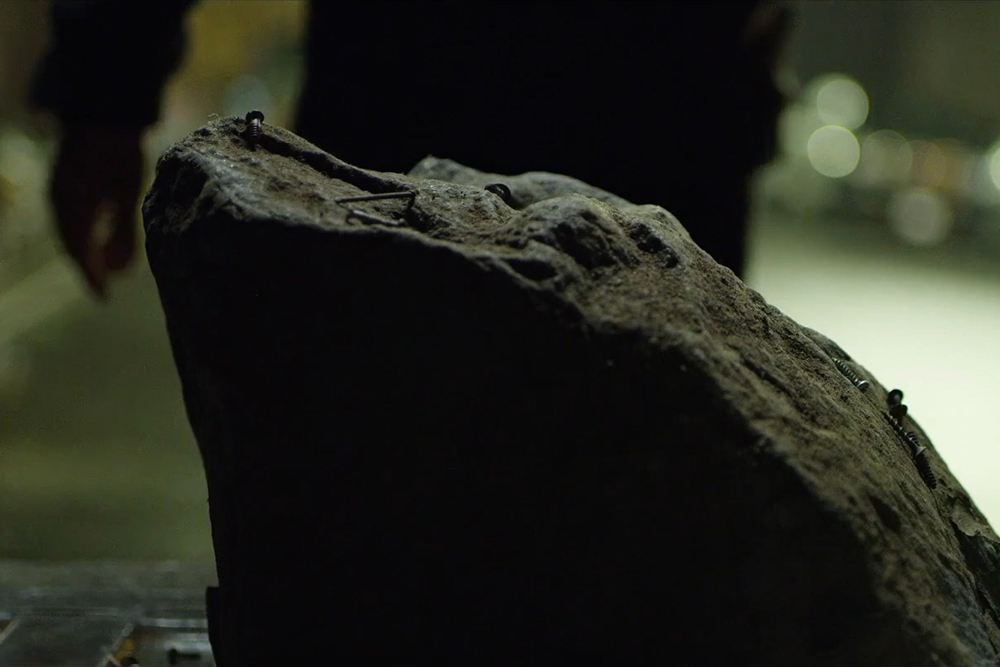
Q : What Can you tell us about your filming locations ?
Antonio Tibaldi : so the filming location when i make a film i always try and think that you know you are doing a representation means present again so when you present again something you are looking for extreme so you're looking for contrast so in a story i think you want to go from you want to try and find the tips of your story that touch the edges of what you're telling so in this case uh shooting i live in New York city i've lived in New York city for more than 20 years and i have discovered in the search of the location a whole other city i mean it's a huge city granted that i didn't know a lot of the location that we ended up choosing and it came out of tremendous amount of work of research meaning research just driving around getting hints from people and we had a an amazing team from inmates production that we did basically location scouting for over five months before we really knew if we were going to even make this film i said what can we do how can we start say well we can go and look for locations it's the cost of the gas the cost of food it's not going to you know and we're going to discover a city so we're like you know professional tourists of cinema and we will end up with interesting location so once we had this kind of greedy and we knew a lot of the scenes at the beginning would be in the in night so in darkness with artificial lights from buildings and so forth for practical lights and interiors then the idea of under the importance of the brightness and the open expanse of the desert was as important as the grittiness of the beginning because the ending is an ending of hope it's an ending of light and it's an ending where there's no building there's no human construction there is magnetic rock formations that may attract other forces that may be out there so the idea of how do you represent this how do you present again and how do you present dramatically this to an audience without explaining it with words is with the locations and with the colors and with the brightness so that's a little bit kind of the effort we've put into the film and it's as important as casting hits your locations for sure
Q : What were your main sources of inspiration, some movies, any books ?
Antonio Tibaldi : one inspiration that we kept on referring to is a film called under skin which is about a mysterious alien who is a female and who roams around i think it's set in Scotland but it's certainly set in Britain you know great Britain I think it's Scotland and she going around in this strange van and kind of abducts people so i actually really liked that film very much and what i loved about it was the mystery of it and so that was uh for us a reference when we were writing when we were in post-production we actually used a lot of the score as a temp score and then that time score was utilized by Idem our composer as an inspiration then he made a departure point from it but that's that was a very strong influence that we were conscious of i think what's very interesting about inspirations in when you're writing or when you're making a film or whatever you're doing that is artistic that is creative is that you have a whole array of inspirations that are completely unconscious and i think the most interesting work you do with your unconscious actually
Q : Which are for you the good ingredients to create a good drama movie ?
Antonio Tibaldi : the actors the screenplay all of those i think what you're looking for is i think your free elements that compose a film a narrative film yeah and you're looking at characters so the people in it the plot so the action that occurs and the third one is the theme i never burden myself much with the theme itself because i feel the theme is the luggage that you carry it's kind of your backpack that's not external that's just glued to you and whatever you do if you're true to yourself you will carry that backpack so then you're left with two things you're left with character the people in it and the plot so who are the people in my film what do they do and what you try and do is when you're dramatizing you're creating a direction that those people think they want to go and then you think okay what are the obstacles so if it's a bicycle is what do i put in the wheels of this bicycle to make this bicycle trip and how will the bicycle get back up and go towards that direction again so those are kind of if you will you know i think cinema is like magic and i think so these are the tricks that most riders most dramaturgians or dramaturgs apologize utilize to create drama because in the same way as you know when you're watching a soccer game you know who's going to win if it's 7-0 a lot of people switch it off because you know they're not gonna you know the other team won't catch up so you're trying to create this you know four three or five four you know score and just to and but it has to be ingrained in the body of the dromedary geometry if you see the mechanism where it's artificial the obstacle that you're implanting then you're failing i think as a writer because your audience sees it coming and you're there the audience anticipates you what i always try and think is that the film is like the locomotor and the audience is behind so you're pulling the audience that's what you're trying to do and you don't want to show them exactly where you're going but you want them to go with you nice
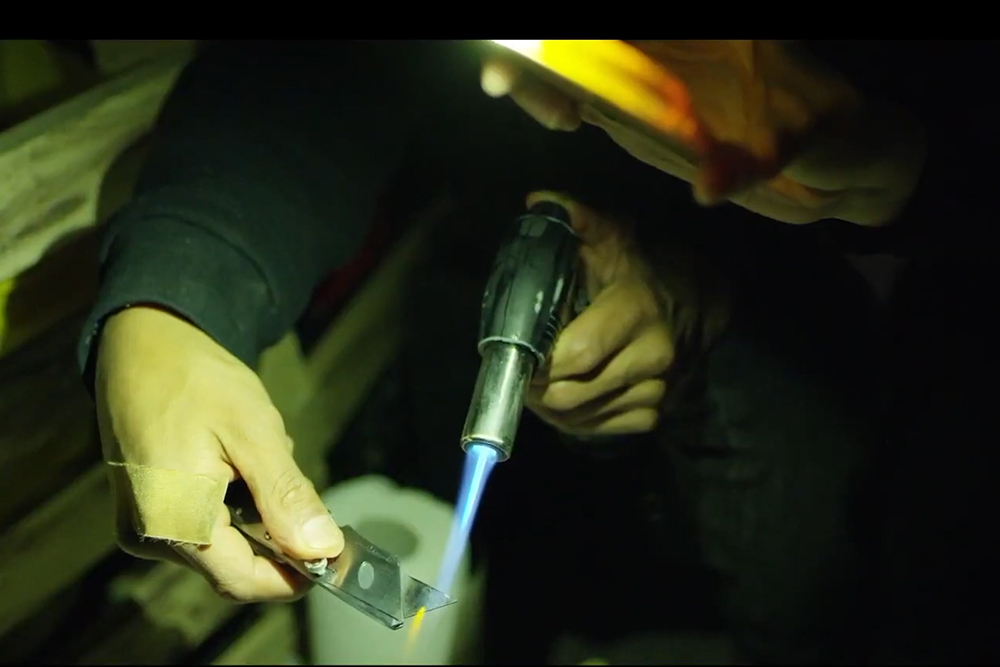
Q : What was the most difficult scene for you to shoot and why ?
Antonio Tibaldi : the most difficult scene hands down in we are living things is a scene that involves i don't want to give it away too much but uh it involves something very strange that occurs in the karaoke club where the female lead character is brought into a room and i don't i'm not gonna say what happens but i'm gonna say that it was it's difficult to watch i think in many ways it's unpleasant to watch and he was extremely unpleasant and i felt very weird shooting it and i don't know exactly where it came from but it's in the family meaning in my mind.
Q : What can you tell us about your collaboration with your composer ?
Antonio Tibaldi : his name is Iden. he is actually originally Italian he lives in the US. He's a very mysterious person and he wants to stay that way that he's an extraordinary so he doesn't want much information to be revealed about who he is i can just say that he is European lives in Los Angeles and he's a very old and dear friend and he's an amazing musician who is classically trained and so we had this collaboration that started before the film started i made some what they call them mood boards so they are audio visual mood boards before you make a movie you have to find the money to make the movie so you have to hook people who have money and make them understand the type of movie you want to make so a screenplay it's just written words people would have to read it you would have to write it in an amazing way and people would have to actually read it for them to imagine a world that's too much to ask for people who usually are busy who have money and so forth so what you want what they will look at is either something that is by dementia like photography some very little text some visuals and they will look at a three-minute mood board which is an audio-visual idea of what it is so there what we did is we used footage that we had shot or that we kind of lifted meaning stall from other films or other things that we felt were parallel or similar to what we wanted to do and then we took some of those sounds that belong there and then we had the composer do a soundtrack for us that's how so the collaboration so the music was being written even before we were making the movie and then he was constantly modified and i actually modified the music all the way till you know a couple of weeks before the screening year which is going to be completely fulfilled.
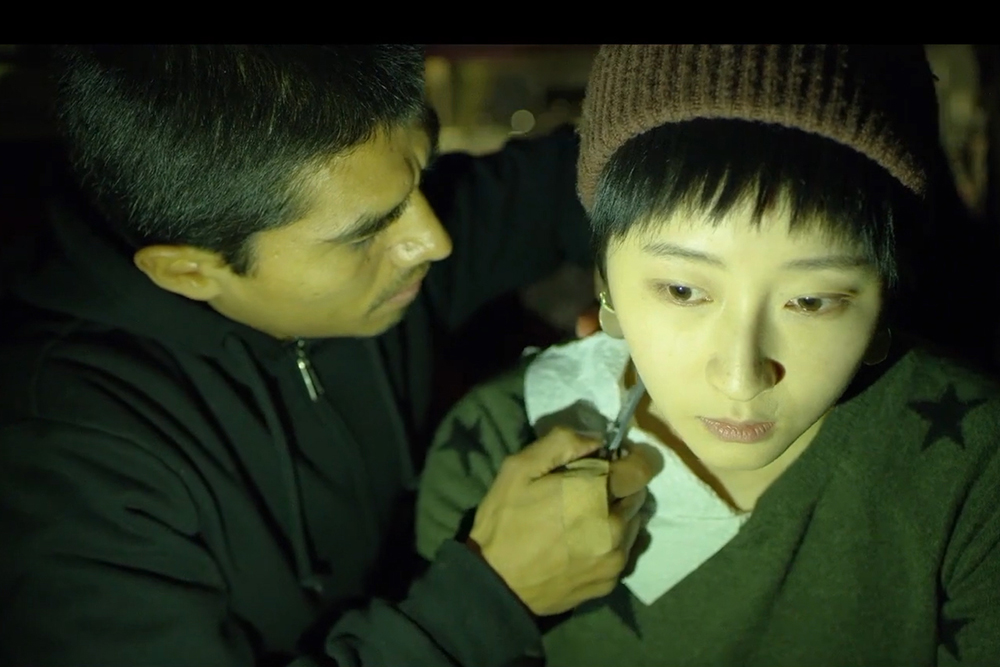
Q : Your film was very well received yesterday at the American Film Festival in Deauville and the debate after the film was just as successful as the film. Did you expect such a good reception in France?
Antonio Tibaldi : i was very nervous you know my panic almost panicked because the film is very unusual it doesn't fall into a category of film very easily so when we were setting it up so when we were trying to find the money for it that was actually a winning point it's not a free it's not a thriller it's not just straight drama it's not a road movie but it has elements of all of those genres but it's kind of its own thing so people were intrigued oh that sounds interesting because you know a thriller this commercial a drama a bit less a road movie has a sense of voyage of trip so we'll see different scenery so it was a good selling point once the movie was completed people watched it a lot of people really liked to film me but take the film but they don't quite know how to define it they don't quite know how to categorize it and therefore how to sell it so it's was concerned that that meant that maybe an audience wouldn't receive it so when i screened it here in the in the CID which is a very large theater i was sitting there and that was really i know the movie by heart but i was really looking at the people around me to see if they were connecting with the film and they were in a very i felt in a very strong way and so people nobody walked out of the movie theater and that is in festival that happens yes a lot so all these were very reassuring and actually comforting uh realizations that came during the screening and also the discussion the debate after was you know pretty interesting to me in the sense that the questions were not trivial they were pretty deep and they forced me to and i like to do that to level with the questions that are asked and try and meet that standard so the discussions were actually ended up being actually philosophical uh which was pretty unusual for a film festival
Q : Which are your currents projects ?
Antonio Tibaldi : Yes, so i am currently working on post-production of a non-fiction film an observational non-fiction film that i've been shooting for three years in the last agricultural pinot colony in Europe which is basically a prison island off the coast of Livorno called Gorgona which is the prison itself is older than the Italian constitution the prison started in 1869 and today it's an experiment on having a prison where the bars is the ocean and where the inmates in the morning they open the cells they come out and they go and take care of farm animals they also butcher them they take care of you know the plants you know fruits vegetables and so forth so now I am going back to editing i have 160 hours of footage and i have to put it together that's going to absorb a lot of the rest of the year i also recently completed a short film that is going to start the festival circuit called how she didn't die about a woman this is based on real events a woman who had one son in a boarding school and she wrote a free page draft of a scenario and in the scenario this the main character is a woman who has a son and who wants to end her life but she doesn't want to upset too much her son by committing suicide so she ends up finding a young man have him fall in love with her and have him kill her so we made this short the interesting facts behind this is the writer of this three page short story nine years after she wrote those three pages took her own life once her son had fined a job and had medical insurance so those are the two projects that i'm actively working on that are already shot and there's another project that I’m starting to write with an actress from Taiwan who is an extraordinary actress and we're working on starting a screenplay about her who will also be the lead actress and uh a very old man so she's a child she's gonna play a Chinese character who has entered the US illegally and somehow saves an old man who at the beginning the very first scene of that film would be this old man who tries to commit suicide by jumping in the Hudson river in march where it's frozen the woman sees him says and brings him back home and now they have this secret connection because nobody around them really knows that she saved his life and he's going to want to pay her back for giving him will and wish to live again.
Synopsis:
Solomon, an undocumented Mexican immigrant, lives and works in a New York City recycling center. Convinced that his missing mother has been abducted by aliens, he has built himself a radio telescope to intercept possible communications from outer space. He meets by chance the attractive Chuyao, a fetishist employee of a nail salon in an irregular situation, who also shares a personal interest in UFOs. After a violent altercation with her thuggish boyfriend, the two left-behind escape to the West in search of the truth.
We are living things
Directed by Antonio Tibaldi
Produced by Fan He, Andrew K. Li, Alex Lora & Antonio Tibaldi
Written by Antonio Tibaldi & Alex Lora
Starring Jorge Antonio Guerrero, Xingchen Lyu, Zao Wang, O-Lan Jones, Paul Cooper
Music by Idem
Cinematography : Luca Bigazzi
Edited by Alex Lora
Production companies : EnMaze Pictures Inc
Running time : 94 minutes
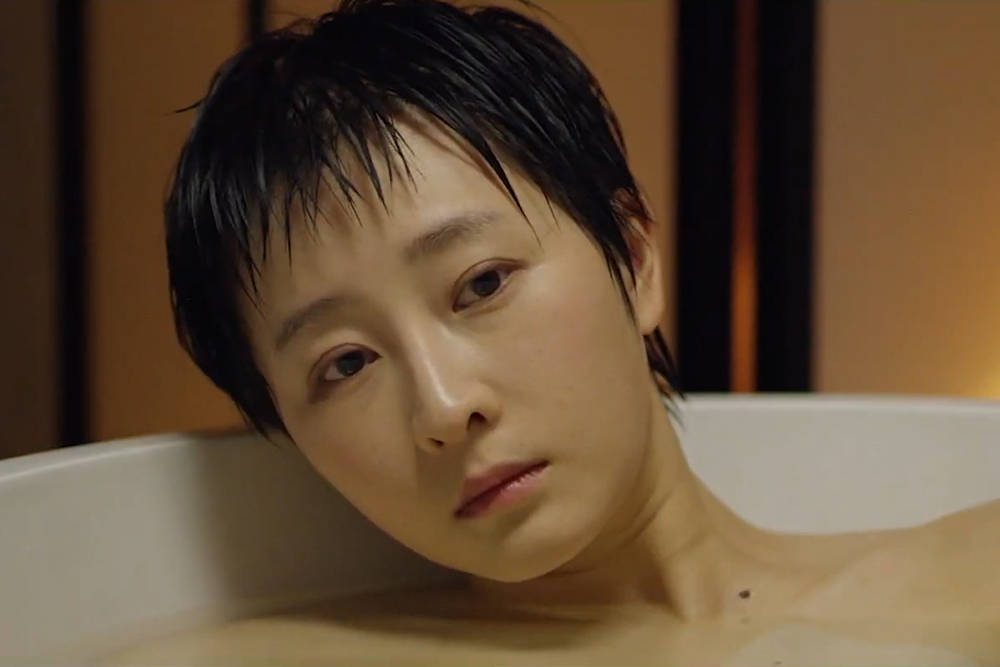
Photos d’ Antonio Tibaldi et video de l’interview : Boris Colletier / Mulderville
We would like to thank Michel Burstein for this great interview and Antonio Tibaldi


